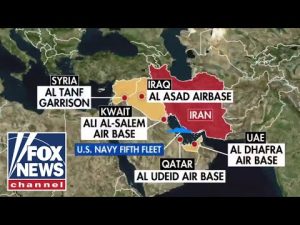The United Nations (UN) recently found itself at the center of a heated discussion concerning global peace and security, with former Israeli ambassador to the UN, Gilad Erdan, providing some eye-opening insights. According to Erdan, the atmosphere at the UN is characterized by what he refers to as “blah, blah, blah,” particularly when it comes to discussing Israel and the United States. He paints a rather bleak picture, arguing that the UN has lost its way and is now largely ineffective. With a membership made up of many non-democratic nations, the UN has become a platform where dictators can conveniently whitewash their actions.
Erdan’s main contention is that the UN is no longer a body that promotes democracy and stability. Instead, it now caters to the interests of countries like Russia and China, who wield their veto power to block any meaningful resolutions that might disrupt their agendas. This, according to Erdan, renders the UN somewhat irrelevant. The ambassador believes that Americans and allies around the world should disregard the often one-sided narratives coming from this international organization.
The key message Erdan highlighted during the discussion was the strong stance taken by the United States under President Trump. By supporting Israel and reaffirming America’s role as a superpower, Trump’s administration has sent a clear signal that the U.S. will stand firm against threats, particularly from Iran, which is seen as the world’s leading state sponsor of terrorism. Erdan argued that this approach has reassured nations in the Middle East, such as Saudi Arabia and the United Arab Emirates, which now recognize the importance of standing by the United States.
He emphasizes that the challenges posed by Iran extend beyond Israel; they are global in nature. Iran’s involvement in various conflicts and its pursuit of nuclear capabilities are seen as direct threats not only to regional allies but to world peace as well. With a track record of violence and destabilization, Iran has been held responsible for the deaths of many Americans, and Erdan argues that addressing the Iranian threat is crucial for safeguarding democracy and security worldwide.
In the face of these challenges, questions linger about whether any nations in the Middle East could serve as intermediaries to encourage Iran to reconsider its aggressive posture. Unfortunately, Erdan is doubtful. He suggests that only a change in leadership within Iran could lead to progress. His proposals include a more aggressive stance—targeting not just military infrastructure but also the regime’s other essential systems like electricity and water, akin to the tactics Iran employs against Israel. Without serious deterrents, Erdan believes it is unlikely Iran will engage in constructive dialogues.
The conversation also touched on Iran’s proxy group, Hezbollah, which has condemned U.S. military actions aimed at thwarting Iran’s nuclear program. The presence of such proxy forces is a point of concern, but Erdan believes that recent military successes against these terrorist organizations underline a broader commitment to ensuring global safety. Despite the heavy toll taken on security, particularly noted during incidents like the tragic events of October 7th, Erdan remains optimistic that with continued determination and action, the world can move towards a more secure and peaceful future.







